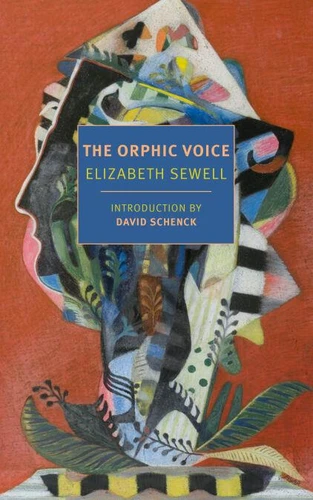The Orphic Voice. Poetry and Natural History
Par : ,Formats :
Disponible dans votre compte client Decitre ou Furet du Nord dès validation de votre commande. Le format ePub protégé est :
- Compatible avec une lecture sur My Vivlio (smartphone, tablette, ordinateur)
- Compatible avec une lecture sur liseuses Vivlio
- Pour les liseuses autres que Vivlio, vous devez utiliser le logiciel Adobe Digital Edition. Non compatible avec la lecture sur les liseuses Kindle, Remarkable et Sony
- Non compatible avec un achat hors France métropolitaine
 , qui est-ce ?
, qui est-ce ?Notre partenaire de plateforme de lecture numérique où vous retrouverez l'ensemble de vos ebooks gratuitement
Pour en savoir plus sur nos ebooks, consultez notre aide en ligne ici
- Nombre de pages496
- FormatePub
- ISBN978-1-68137-602-8
- EAN9781681376028
- Date de parution03/05/2022
- Protection num.Adobe DRM
- Taille1 Mo
- Infos supplémentairesepub
- ÉditeurNYRB Classics
Résumé
A wondrously written book of literary criticism and philosophy that maps the relationship between poetry and natural history, connecting verse from poets such as Shakespeare and Rainer Maria Rilke to the work of scientists and theorists like Francis Bacon and Michael Polanyi. Taking its bearings from the Greek myth of Orpheus, whose singing had the power to move the rocks and trees and to quiet the animals, Elizabeth Sewell's The Orphic Voice transforms our understanding of the relationship between mind and nature.
Myth, Sewell argues, is not mere fable but an ancient and vital form of reflection that unites poetry, philosophy, and natural science: Shakespeare with Francis Bacon and Giambattista Vico; Wordsworth and Rilke with Michael Polanyi. All these members of the Orphic company share a common perception that "discovery, in science and poetry, is a mythological situation in which the mind unites with a figure of its own devising as a means toward understanding the world." Sewell's visionary book, first published in 1960, presents brilliantly illuminating readings of A Midsummer Night's Dream and Rilke's Sonnets to Orpheus, among other masterpieces, while deepening our understanding not only of poetry and the history of ideas but of the biological reach of the mind.
Myth, Sewell argues, is not mere fable but an ancient and vital form of reflection that unites poetry, philosophy, and natural science: Shakespeare with Francis Bacon and Giambattista Vico; Wordsworth and Rilke with Michael Polanyi. All these members of the Orphic company share a common perception that "discovery, in science and poetry, is a mythological situation in which the mind unites with a figure of its own devising as a means toward understanding the world." Sewell's visionary book, first published in 1960, presents brilliantly illuminating readings of A Midsummer Night's Dream and Rilke's Sonnets to Orpheus, among other masterpieces, while deepening our understanding not only of poetry and the history of ideas but of the biological reach of the mind.
A wondrously written book of literary criticism and philosophy that maps the relationship between poetry and natural history, connecting verse from poets such as Shakespeare and Rainer Maria Rilke to the work of scientists and theorists like Francis Bacon and Michael Polanyi. Taking its bearings from the Greek myth of Orpheus, whose singing had the power to move the rocks and trees and to quiet the animals, Elizabeth Sewell's The Orphic Voice transforms our understanding of the relationship between mind and nature.
Myth, Sewell argues, is not mere fable but an ancient and vital form of reflection that unites poetry, philosophy, and natural science: Shakespeare with Francis Bacon and Giambattista Vico; Wordsworth and Rilke with Michael Polanyi. All these members of the Orphic company share a common perception that "discovery, in science and poetry, is a mythological situation in which the mind unites with a figure of its own devising as a means toward understanding the world." Sewell's visionary book, first published in 1960, presents brilliantly illuminating readings of A Midsummer Night's Dream and Rilke's Sonnets to Orpheus, among other masterpieces, while deepening our understanding not only of poetry and the history of ideas but of the biological reach of the mind.
Myth, Sewell argues, is not mere fable but an ancient and vital form of reflection that unites poetry, philosophy, and natural science: Shakespeare with Francis Bacon and Giambattista Vico; Wordsworth and Rilke with Michael Polanyi. All these members of the Orphic company share a common perception that "discovery, in science and poetry, is a mythological situation in which the mind unites with a figure of its own devising as a means toward understanding the world." Sewell's visionary book, first published in 1960, presents brilliantly illuminating readings of A Midsummer Night's Dream and Rilke's Sonnets to Orpheus, among other masterpieces, while deepening our understanding not only of poetry and the history of ideas but of the biological reach of the mind.



